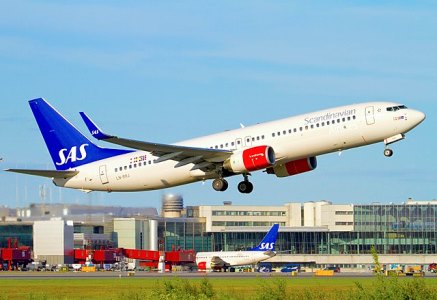
In Norway, we see three trade union conflicts that show what happens when workers are treated badly.
Two years ago, at the beginning of the pandemic, we saw every political party in Norway, including the Norwegian AP (labour party) and SV (Socialist Left) all rushing to give all the big companies access to huge amounts of taxpayers’ money, without any conditions.
This money was to ensure that the workers had a job to return to. The proviso that no jobs were to be lost and that all the hard-earned union rights were to be maintained was not added. The way was open for the CEOs and shareholders to exploit. What we saw was shameful; redundancies, shop stewards getting fired, ‘fire and rehire’, and we saw the pocketing of huge amounts of taxpayers’ money by the heads of the entire major receivers of these funds.
The LO (TUC) wrongly supported a policy of no pay rises during the pandemic (e.g. the terrible treatment of nurses). The LO (Norwegian TUC) should have called for union actions, in all cities across the country, and a half-day general strike, to win decent wages and working conditions. The LO (Norwegian TUC) was very passive in its handling of the pandemic, especially on the PPE issue, and took a back seat, leaving the workers’ unions in most of the service industries to battle the front line of cuts and fire and rehire.
However, during the second week of July 2022, we see three labour conflicts (and there will be more later in the year); involving the Union of Aircraft Engineering Association, the oil/gas workers on North Sea oil platforms, and the SAS pilots.
The Norwegian state TV news channel, NRK, announced on Wednesday 22 June 2022 that the employers will initiate a lockout during the upcoming aircraft technicians’ strike. This is often how employers in Norway break strikes. This time, because there are some ambulance planes involved and according to the employers there is a threat to life and health, the Labour government invoked forced arbitration (tvungen lønnsnemnd). Yet the unions were prepared to service the ambulance planes and helicopters. This is a cynical ploy by the employers acquiesced to by the Labour government.
It was announced on the news, two days ago, that the Minister of Labour, Marte Mjøs Persen, (Labour Party) is using (tvungen lønnsnemnd) forced arbitration to stop the oil/gas workers’ strike on North Sea platforms. This was anticipated by the union, which said: “This is not about the danger to health or safety, but large revenue [losses] for the state.”
The CWI in Norway has always called on the LO (Norwegian TUC) to take action against compulsory arbitration, which effectively cuts across all free negotiations between trade unions and employers’ organizations. The LO (TUC) must convene a conference with shop stewards and union representatives to discuss how this outdated law should be assigned to the history books.
A month of action in all the major cities, and a half-day general strike, is what is needed to resist.
There is part of the more ‘moderate’ wing of the AP (Norwegian social democrats) and LO (TUC) that says that this wage demand for aircraft technicians is too large and that the demand (if met) will lead to inflation.
But the rising costs of food and diesel and gasoline, which have gone up to about 30% since January 2022, as well as the doubling and more of the costs of electricity, and, finally, the huge jumps in bank interest rates for mortgages (from 0.25% to 3%), in a short time, all add an insufferable burden for workers already trying to cope with the pandemic. At the same time, huge amounts of money are paid to shareholders. This shows that the right-wing argument that wage increases cause inflation is a myth.
Unless the banks are nationalized, the energy markets and petroleum services renationalized, and the supermarket chain stores that are owned by a handful of companies that earned huge profits during the pandemic are also brought into public ownership, under democratic workers’ control and management, the situation will only get worse for workers.
SAS airline pilots strike
Pilots from the Swedish-Danish carrier, SAS, struck for 15 days in an attempt to make up pay and job losses following the COVID-19 pandemic.
Despite promises that receipt of state funding guaranteed pilots’ jobs when pandemic furloughs ended, SAS used legal trickery- the establishment of a ‘daughter company’ – so that rehired pilots lost pensions and benefits. Pilots were also offered a 30% cut in wages.
Two out of every five SAS pilots lost their jobs during the pandemic. One union official described the settlement, signed on 19 July, as a “tragedy for pilots.” Only 450 of 560 sacked pilots will be rehired under the deal.
The CWI stands in solidarity with the striking pilots. The four unions representing the pilots should have continued the fight, though, rather than accept a bad deal. SAS’s United States arm filed for bankruptcy the day after the strike began but with the company on the ropes, the unions had a serious opportunity to make gains and force the company to reorganize to its employees’ benefit.
SAS is already part-owned by the Swedish and Danish governments, with an additional Norwegian government stake. The demand for full national ownership and democratic control by the workers, for public benefit, could have struck a chord with workers tired of failed privatization, job losses, and effective pay cuts from high inflation.
